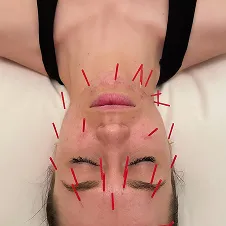BLOGS
5 tips for better sleep naturally

Getting enough good quality sleep every night is important for all aspects of our health. There may be many reasons as to why you could be struggling with sleep and working with a naturopathic doctor can help get to the root cause of your sleep issues and help you get good quality sleep again.
If you are struggling to fall asleep, or struggling to stay asleep and wake often throughout the night, you don’t have to suffer through these sleep struggles, there are solutions for better sleep! Some of the common reasons you may be struggling with sleep could be due to high levels of stress, overuse of our phones or TV before bed, consuming stimulants too close to bedtime, having nutrient and vitamin deficiencies, not exercising regularly, etc.
If you find you have a lot on your mind before bed and constantly think of things you need to do the next day or replaying the past days events, then you may be experiencing what we call having an overactive mind at night, often due to high stress levels. One of the ways we can help teach our brain to shut down before bed is to write out what we need to do the following day or write out what happened that day. This signals to your brain that you don’t need to worry about these things because they are written down and will be attended to later.
Here are 5 tips for getting better sleep naturally:
1. Aim for 8 hours a night
Most adults need about 7-8 hours a night to be able to get good quality sleep and to support overall health. Not sleeping long enough can impact different areas of our health including our brain function, memory, mood, energy, hormone regulation and production, metabolism and healthy weight maintenance, immune function, etc.
2. Have consistent bed and wake up times
Going to bed and waking up at the same time every day is one of the biggest impacts we can have on getting better quality sleep and improving overall health. You can determine your ideal schedule by working backwards, start by figuring out what time you need to wake up at in the mornings in order to get ready for your day (to get to work, get the kids ready, go to school, etc) and then count backwards 8 hours from your ideal wake up time to establish what your ideal bedtime should be. For example, if you need to get up at 6am in order to get ready for your day then you need to be asleep by 10pm in order to allow yourself 8 hours of sleep a night.
3. Reduce stress
This one is easier said than done. But finding ways to help reduce your levels of stress is one of the best things we can do to be able to calm ourselves before bed. If you are constantly lying awake in bed planning out your to-do list or going over past events from the day, then it is important that you find ways to help calm your mind before bed. As mentioned earlier, one way you can calm your mind before bed is by writing out the events that occurred that day and how it made you feel or what could have been improved, etc, as well as writing down your to-do list for the next day or remainder of the week. This way you signal to your brain that you don’t need to worry about forgetting anything as you have already written it down and can allow the body to sleep peacefully.
4. Move your body
Movement/exercise is super important for improving the quality of our sleep as it helps you fall asleep faster, allows for deeper sleep and also helps to reduce stress. Exercise can also help to increase melatonin production (our sleep hormone) which regulates our sleep-wake cycles and allows us to fall asleep quicker. It is important to note that exercising too close to bedtime, especially high intensity exercise, can delay the onset of melatonin production which can make it harder to fall asleep.
5. Eat regularly and prioritize protein
Having regular meal times and ensuring you don’t skip meals helps to regulate your body’s internal clock, which can improve sleep quality. Avoiding late night meals and sugary foods can promote better sleep by helping you fall asleep quicker as well as improve sleep duration. Prioritizing balanced meals, especially a focus on increasing protein, can help support healthy sleep patterns such as getting deeper sleep, falling asleep quicker, staying asleep longer and overall feeling more rested after waking in the morning.









